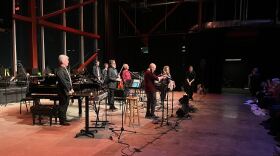COVID-19 infections continue to rise around the country and many cities and states are implementing new restrictions. Public health experts see this as a necessary step in slowing the spread of this disease. But it’s undeniable that these restrictions will also have an impact on local governments, which are already struggling to survive.
At the federal level, a stimulus package intended to ease the pain of local economies has stalled in the U.S. Senate with no clear path forward.
What will that mean for a city like Milwaukee, which in some ways still hasn’t fully recovered from the Great Recession?
A recent report published by the National League of Cities looked back at how federal funding impacted the economic recovery of cities and states during the Great Recession and the financial strain they are dealing with today.
“After the attention to the Great Recession had faded, cities were still struggling and what ended up happening was really across the board, cities across the country cut expenditures on a number of services, laid off millions and millions of workers and these decisions, which in many ways were forced onto cities by the federal government, had really important implications for the economy,” says Marquette professor and co-author of the National League of Cities report Phil Rocco.
Milwaukee homeowners will remember that this led to a 14% increase in property taxes. Because the state of Wisconsin has usually not allowed larger municipalities to create special taxes, raising property taxes is one of the only tools Milwaukee has when revenue is down, and the state and federal government aren’t there to help out.
“When we see inaction on the part of higher levels of government, it’s not merely the absence of action, it’s forcing the most painful choices onto the people who are at, sort of, the closest frontline to the action,” says Rocco.
He says this has also become true during the pandemic and that local and state health agencies are bearing the weight of this crisis. Without help from the federal government, local governments are going to struggle to keep their heads above water, Rocco says, and the more time that passes, the harder it is going to be to rebuild.
It’s important to remember, he says, that local governments not only provide services but also contribute almost a trillion dollars to the U.S.'s gross domestic product and account for millions of jobs. That is why, Rocco says, direct relief is needed now and it also needs to be set up for future hard times in the economy.
“A program that when economic crisis’ worsen, the program gets tripped off and money flows from the federal government to state and local governments to, again, not as a bail out by any means but to help support the system of federalism that we have in the United States,” he says.







